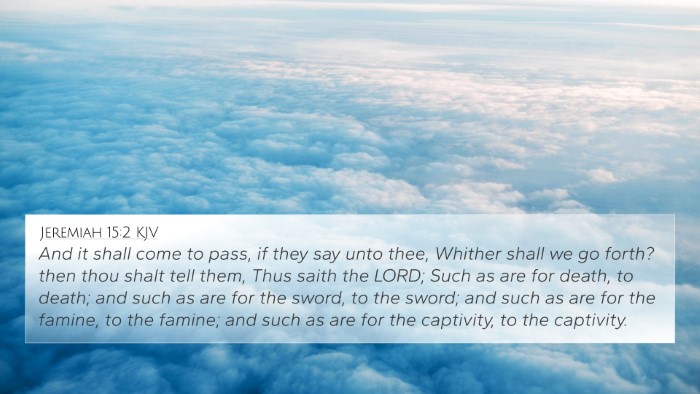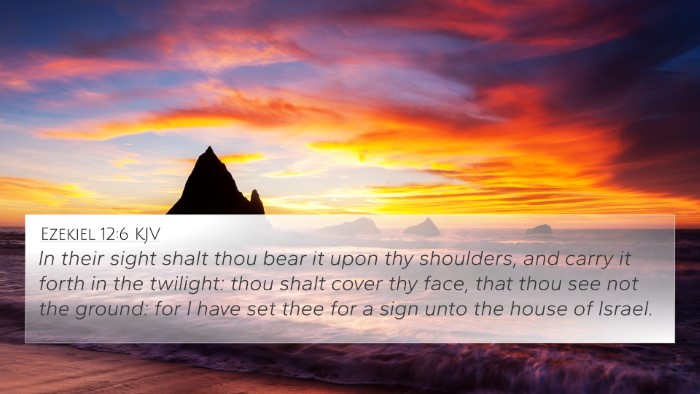Meaning and Insights
This verse serves as a poignant illustration of Ezekiel's prophetic role, signifying both a warning and a demonstration of the impending judgment of God upon Israel. The verse highlights God's sovereignty and the consequences of disobedience.
Contextual Analysis
Ezekiel was tasked with communicating God's messages during a time of great turmoil for Israel, emphasizing both pending destruction and eventual restoration. The statement "I am your sign" underscores the prophetic actions of Ezekiel as a divinely appointed messenger.
Connections to Other Scriptures
- Jeremiah 24:8-10: Discusses the fate of Jerusalem and likens the people to good and bad figs, illustrating God's judgment on the disobedient.
- Isaiah 39:6-7: God's disclosure to Hezekiah about the future captivity of the people of Judah.
- Ezekiel 4:4-6: Ezekiel's symbolic actions portraying the siege of Jerusalem, showing parallels in prophetic behavior.
- Leviticus 26:33: A precursor to the prophetic warnings, outlining the consequences of Israel's disobedience, including exile.
- 2 Kings 24:14: Chronicles the captivity of Jerusalem, providing a historical backdrop to Ezekiel's prophecy.
- Lamentations 1:3: Reflects on the sorrow of the city, reinforcing the themes of loss and captivity found in Ezekiel.
- Zechariah 7:14: Offers a prophetic contrast of future restoration, reminding readers that judgment isn't the end.
- Matthew 24:2: Jesus references the desolation of the temple, echoing themes from Ezekiel regarding judgment.
- Romans 11:1-2: Discusses God's ongoing relationship with Israel, emphasizing His faithfulness even amidst judgment.
Thematic Overview
This verse encapsulates major biblical themes including judgment, captivity, prophetic action, and God's ultimate sovereignty. Ezekiel's acts serve not only as warnings but also as a call for repentance among the people.
Interpretative Reflections
According to Matthew Henry, this verse demonstrates how God’s signs act as both warnings and reminders of His covenantal faithfulness, emphasizing that prophetic actions convey profound spiritual truths. Albert Barnes notes that Ezekiel's actions served not just as warnings but also as a means to lead individuals toward an understanding of their dire situation—an opportunity for reflection and response. Adam Clarke adds that the removal to captivity was not just a punishment but a divine strategy for future restoration, teaching that God's ultimate plan encompasses justice and mercy.
Applications for Today
Readers can view Ezekiel 12:11 as a call for introspection regarding their own journey with God. It symbolizes both consequence for sin and hope for restoration through repentance. This bears relevance in contemporary Christian life, reinforcing the importance of heeding divine messages and the call to turn from disobedience.
Cross-Referencing as a Study Tool
Utilizing a Bible concordance or Bible reference resources can greatly enhance understanding of connections between Bible verses. Tools for Bible cross-referencing help identify thematic links between passages, guiding readers to deeper insights and foundational truths within Scripture.






